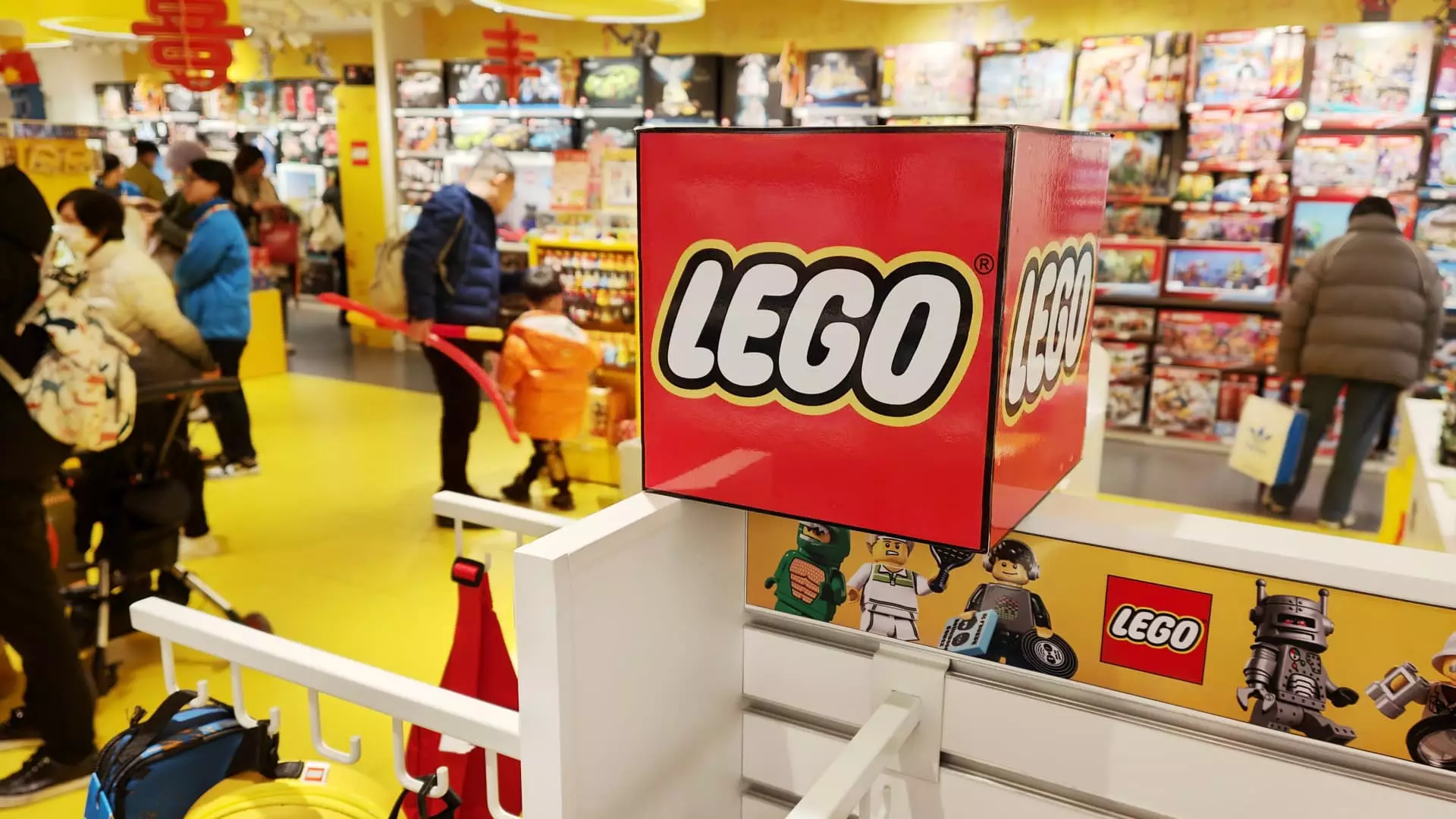The toy industry faced a significant challenge in the first half of 2024 due to an inflation-fueled sales slump. However, amidst this turmoil, one company managed to stand out and gain market share – Lego. The Danish toymaker reported a remarkable 13% increase in revenue, reaching a total of 31 billion Danish krone, approximately $4.65 billion. This surge in growth is attributed to various factors, including the strength of Lego’s portfolio, the popularity of Lego Icons and Lego Creator, and a successful partnership with Epic Games’ Fortnite.
While Lego experienced a positive trajectory in sales, its rivals Mattel and Hasbro faced a decline. Mattel witnessed a 1% decrease in net sales, whereas Hasbro reported a substantial 21% drop in net revenue during the same period. Mattel’s struggles can be attributed to tough comparisons from previous toy sales driven by the success of “Barbie” in 2023. On the other hand, Hasbro is still reeling from the impact of divesting eOne. In contrast, Lego’s diversified product offerings cater to a wide range of consumers, from children to adults, providing them with innovative design options and sets linked to popular franchises such as Harry Potter and Star Wars.
Despite facing challenges in China where sales remained flat, Lego remains committed to expanding its presence in the region. Niels Christiansen, the CEO of Lego, emphasized the long-term potential of the Chinese market and the company’s strategic growth plans. Out of the 40 Lego stores opened in the first quarter, half were in China. Additionally, 20 out of the planned 60 store openings in the second half of the year are designated for China. This proactive approach demonstrates Lego’s determination to establish a strong foothold in the growing Chinese market.
In addition to its impressive financial performance, Lego has also made significant strides in sustainability. Christiansen highlighted the company’s commitment to using renewable and recyclable materials in its products, nearly doubling the usage compared to the previous year. Despite the higher costs associated with these materials, Lego has absorbed the expenses without passing them onto consumers. This investment in sustainability not only benefits the environment but also incentivizes suppliers to develop more sustainable products and increase production capacity. Looking ahead, Lego aims to source half of its raw materials from sustainable sources in the coming years, further solidifying its position as an eco-conscious industry leader.
Lego’s success amidst the challenging economic landscape of 2024 underscores its resilience, innovation, and commitment to sustainability. With a diverse product range, strategic market expansion plans, and a focus on eco-friendly practices, Lego is well-positioned to maintain its growth trajectory and continue captivating the hearts of consumers worldwide.

